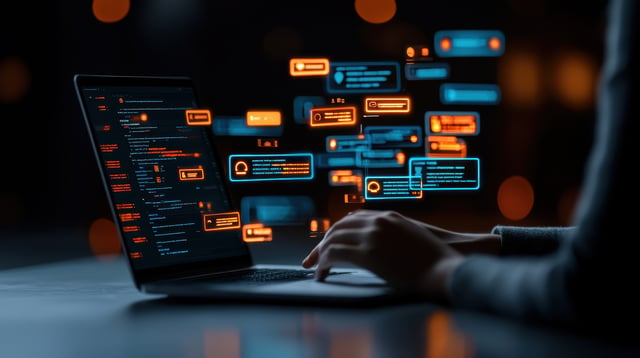Top AI-Powered SEO Tools for 2025: A Comprehensive Guide to Smarter Rankings

In the relentless race for online visibility, the year 2025 marks a pivotal point where AI-powered SEO tools have transitioned from innovative novelties to indispensable arsenals for digital marketers. The sheer velocity of search algorithm changes, the exponential growth of online data, and the ever-increasing demand for hyper-relevant, personalized user experiences dictate that relying solely on traditional SEO methods is a losing proposition. To truly dominate search engine results pages (SERPs) and secure smarter rankings, a deep understanding and strategic implementation of the best AI-powered SEO tools are no longer optional – they are the bedrock of success.
This comprehensive guide will not only unveil the leading AI-powered SEO tools for 2025 but will also explore the underlying principles that make them so powerful. We’ll dive into how AI is fundamentally reshaping every facet of SEO, from the initial stages of keyword discovery to the intricate nuances of technical optimization and sustained authority building. Prepare to revolutionize your SEO strategy and achieve unparalleled organic growth with the intelligent foresight and efficiency that only artificial intelligence can provide.
The Unstoppable Ascent of AI in SEO: Why 2025 is Different
The integration of artificial intelligence into search engine optimization isn’t a new phenomenon, but 2025 represents a critical inflection point. Search engines themselves, most notably Google with its ongoing advancements in AI Overviews and sophisticated understanding of natural language through models like BERT and evolving Large Language Models (LLMs), are intrinsically AI-driven. This means that to effectively communicate with these algorithms and deliver what users truly seek, marketers must adopt AI-powered SEO tools that speak the same language.
Here’s a deeper dive into why AI-powered SEO tools are not just advantageous, but absolutely vital in the current landscape:
- Beyond Keywords: Understanding Search Intent with AI: No longer is it enough to simply identify keywords. AI’s natural language processing (NLP) capabilities allow AI-powered SEO tools to analyze the intent behind a query. Are users looking for information, a product to buy, or a specific location? AI helps you craft content that precisely matches this intent, leading to higher engagement and better rankings.
- Predictive Analytics for Proactive Strategies: Imagine knowing what topics will trend before they explode. Many advanced AI-powered SEO tools leverage machine learning to analyze historical data, current trends, and even sentiment analysis to predict future search demands. This allows businesses to be proactive, creating timely content that captures emerging opportunities and secures early top positions.
- Scalable Content Creation and Optimization: The demand for high-quality, relevant content is insatiable. AI-powered SEO tools significantly reduce the manual effort involved in content creation. From generating comprehensive outlines and suggesting semantically related terms to identifying content gaps and optimizing for readability, AI empowers teams to produce a far greater volume of highly optimized content without compromising quality.
- Automating the Tedious, Empowering the Strategic: Many SEO tasks, while crucial, are repetitive and time-consuming. AI excels at automating these processes – think site audits, competitive analysis, link monitoring, and performance reporting. This frees up human SEO professionals to focus on higher-level strategic thinking, creative problem-solving, and building genuine relationships, amplifying the impact of their expertise.
- Hyper-Personalization and User Experience (UX): AI provides an unprecedented ability to understand individual user journeys and preferences. This allows for truly personalized content experiences, from dynamic website content to tailored product recommendations. Since user experience is an increasingly critical ranking factor, AI-powered SEO tools that enhance UX contribute directly to SEO success.
Deeper Dive: Leading AI-Powered SEO Tools for 2025
Let’s explore the functionalities and unique strengths of the top AI-powered SEO tools that are defining smarter rankings in 2025:
1. Surfer SEO: The Content Optimization Powerhouse
Surfer SEO stands as a titan among AI-powered SEO tools for on-page content optimization. Its core strength lies in its ability to reverse-engineer top-ranking pages for any given keyword. It uses advanced NLP to provide granular recommendations that go far beyond simple keyword density.
- Key AI-driven features:
- Content Editor: This real-time editor provides immediate feedback on your content’s alignment with SERP competitors, suggesting optimal word count, relevant terms and phrases, heading structures, and even image count.
- Audit Tool: Surfer’s audit feature analyzes existing content and identifies specific opportunities for improvement, flagging missing common keywords, broken links, and opportunities for internal linking.
- NLP-driven Keyword Clusters: Beyond single keywords, Surfer’s AI helps identify related topic clusters, enabling you to build comprehensive content hubs that establish strong topical authority. This is crucial for navigating the entity-based search of 2025.
2. Clearscope: Ensuring Content Excellence and Topical Authority
Clearscope is another essential AI-powered SEO tool for content teams focused on achieving unparalleled quality and relevance. Its AI understands semantic relationships, helping you create truly comprehensive and authoritative content.
- Key AI-driven features:
- Content Grader: Provides an objective score for your content based on its relevance and comprehensiveness compared to top-ranking articles.
- Term Suggestions: Goes beyond exact keywords, offering a list of semantically related terms and concepts that Google’s algorithms expect to see for a given topic. This ensures your content provides holistic value.
- Competitor Analysis Integration: Clearscope’s AI allows for insightful comparisons against competitor content, highlighting gaps and opportunities for your own optimization efforts.
3. Frase.io: Accelerating Content Creation and Research
Frase.io acts as an intelligent content assistant, making it one of the most versatile AI-powered SEO tools for streamlining the entire content workflow. Its AI is designed to reduce the time spent on research and accelerate drafting.
- Key AI-driven features:
- Automated Content Briefs: Frase’s AI can instantly generate detailed content briefs, including topic suggestions, headings, questions to answer, and relevant statistics, all pulled from top-ranking sources.
- AI Writer: This feature helps overcome writer’s block by generating content outlines, answering specific questions, and even drafting paragraphs based on your inputs and competitor analysis.
- Topic Clusters & Question Discovery: Frase’s AI helps identify natural language questions users are asking, allowing you to create highly targeted Q&A sections and FAQs that directly address user intent.
4. SEMrush: The AI-Enhanced All-in-One Platform
SEMrush has long been a comprehensive digital marketing suite, and its aggressive integration of AI across its modules makes it a standout among AI-powered SEO tools. Its AI enhancements provide deeper insights and automate critical tasks across the SEO spectrum.
- Key AI-driven features:
- AI-Powered Keyword Magic Tool: Beyond traditional keyword research, AI in SEMrush helps uncover long-tail keywords, related questions, and competitive keyword gaps with greater precision.
- Content Marketing Platform (CMP): This AI-driven module assists with topic research, content idea generation, and provides optimization recommendations for new and existing content.
- On-Page SEO Checker & Site Audit: AI-powered audits identify technical SEO issues, on-page optimization opportunities, and even detect potential algorithm update impacts on your site.
5. Ahrefs: AI for Backlink Intelligence and Content Gaps
While renowned for its backlink analysis, Ahrefs is increasingly leveraging AI to enhance its capabilities, solidifying its position as a powerful one of the AI-powered SEO tools.
- Key AI-driven features:
- AI-Enhanced Content Gap Analysis: Ahrefs uses AI to identify keywords that your competitors rank for but you don’t, often surfacing less obvious content opportunities.
- Smart Link Prospecting: While human outreach is still key, AI can help filter and prioritize potential link opportunities based on relevance, authority, and historical data, making your link-building efforts more efficient.
- Improved SERP Analysis: AI assists in dissecting SERP features and understanding the competitive landscape for specific queries, guiding your content and link strategies.
6. MarketMuse: Enterprise-Level Content Intelligence
For larger organizations and those with extensive content libraries, MarketMuse offers an unparalleled AI-driven approach to content strategy. It’s a true content intelligence platform.
- Key AI-driven features:
- Content Inventory Analysis: MarketMuse’s AI ingests your entire content library and evaluates its performance against your target topics, identifying areas of strength and weakness.
- Content Prioritization: It uses AI to recommend the most impactful content opportunities, advising on what new content to create, what existing content to optimize, and even what to prune.
- Topical Authority Mapping: MarketMuse helps you visualize and build topical authority within your niche, ensuring comprehensive coverage and demonstrating expertise to search engines.
The Ethical Imperative: Responsible Use of AI in SEO
As we embrace the immense power of AI-powered SEO tools, it’s crucial to address the ethical considerations that accompany this technology. Responsible AI implementation is not just good practice; it’s essential for long-term sustainable SEO.
- Transparency and Disclosure: Be transparent with your audience when AI has played a significant role in content generation. While AI can draft, human oversight, fact-checking, and unique insights are paramount for maintaining trust and E-E-A-T (Experience, Expertise, Authoritativeness, Trustworthiness).
- Avoiding Bias and Hallucinations: AI models are trained on vast datasets, which can sometimes contain inherent biases. It’s vital to critically review AI-generated content for accuracy, fairness, and potential “hallucinations” (instances where the AI generates plausible-sounding but incorrect information). Human editors and subject matter experts are irreplaceable for this.
- Data Privacy and Security: AI-powered SEO tools often process significant amounts of data. Ensure that any tools you use comply with data privacy regulations (like GDPR, CCPA) and have robust security measures in place to protect sensitive information.
- Maintaining Human Oversight: AI should augment human capabilities, not replace them. Strategic decision-making, creative ideation, nuanced understanding of user emotions, and adapting to unforeseen algorithm changes still require human intelligence and judgment. The best approach is a symbiotic relationship between human expertise and AI efficiency.
Integrating AI-Powered SEO Tools into Your Workflow: A Strategic Roadmap
Successfully integrating AI-powered SEO tools requires more than just purchasing software. It demands a strategic shift in how your team approaches SEO:
- Define Your Goals Clearly: What specific SEO challenges are you trying to solve? Is it scaling content, improving technical SEO, or enhancing local rankings? Your goals will dictate which AI-powered SEO tools are most relevant.
- Pilot Programs and Incremental Adoption: Instead of a wholesale overhaul, consider starting with pilot programs for specific tools. This allows your team to get comfortable, identify best practices, and measure tangible ROI before broader implementation.
- Invest in Training and Upskilling: Empower your SEO team with the knowledge and skills to effectively leverage AI. This isn’t about replacing jobs, but about evolving roles to become AI-savvy SEO strategists.
- Establish Clear AI Content Guidelines: Develop internal guidelines for how AI will be used in content creation, ensuring brand voice consistency, factual accuracy, and adherence to ethical considerations.
- Continuous Monitoring and Adaptation: The AI and SEO landscape is dynamic. Regularly monitor the performance of your AI-driven strategies and be prepared to adapt your approach as new AI advancements emerge and search algorithms evolve.
- Focus on E-E-A-T More Than Ever: With AI’s ability to generate content, Google is placing an even greater emphasis on E-E-A-T signals. Ensure your AI-assisted content still showcases genuine expertise, is authoritative, and builds trust with both users and search engines.
The Future of SEO is Intelligently Optimized
In 2025, the synergy between human ingenuity and artificial intelligence is unlocking unprecedented opportunities in SEO. AI-powered SEO tools are not just about automation; they are about providing deeper insights, enabling faster execution, and delivering a more personalized and relevant experience for users. By thoughtfully integrating these powerful tools, maintaining ethical standards, and fostering a culture of continuous learning, businesses can not only survive but thrive in the competitive digital landscape, securing smarter rankings and sustainable organic growth.
The world of AI in marketing extends far beyond SEO. To gain a truly holistic understanding of how artificial intelligence is transforming the entire marketing ecosystem, we invite you to explore our comprehensive list of AI Marketing Tools, found here: https://giblink.ai/ai-marketing-tools/





Responses